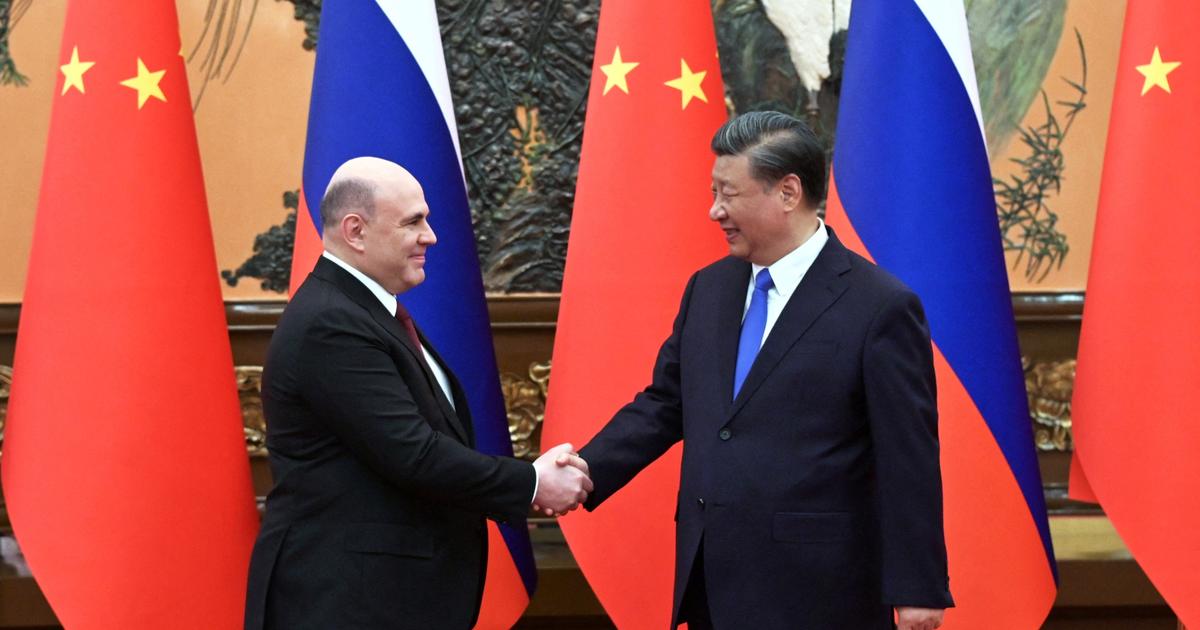Chinese President Xi Jinping on Wednesday (May 24th) promised Russian Prime Minister Mikhail Mishustin on a visit to Beijing the "firm support" of China on matters of "fundamental interests". Former rivals during the Cold War, China and Russia have been strengthening diplomatic and trade relations over the past decade, a trend that has accelerated since the Russian invasion of Ukraine.
Claiming to be a neutral party in the conflict, Beijing calls for respect for the sovereignty of states, but has never publicly condemned the military operation carried out by Russian President Vladimir Putin since February 2022. Russian Prime Minister Mikhail Mishustin arrived in China on Monday. He took part in an economic forum in Shanghai on Tuesday and then traveled to the Chinese capital for talks with his counterpart Li Qiang and President Xi Jinping. He is the most senior Russian official to visit China since the invasion of Ukraine began.
China is willing to continue its firm mutual support with Russia.
Xi Jinping, President of China
«
China is willing to continue the firm mutual support with Russia on issues of each other's core interests," Xi told his host, according to the Xinhua news agency. This vague wording is often used in bilateral meetings with Russian and other country representatives. It often refers to the question of Taiwan on the Chinese side. Xi also called for "strengthening coordination in multilateral forums such as the United Nations, the Shanghai Cooperation Organization, BRICS and the G20," according to Xinhua.
For his part, Mikhail Mishustin had earlier in the day hailed before his Chinese counterpart Li Qiang bilateral relations "of an unprecedented level" during a meeting at the monumental Great Hall of the People in Beijing. "They are characterized by mutual respect for each other's interests, the desire to respond together to challenges, which are linked to increased turbulence on the international scene and the pressure of illegitimate sanctions from the collective West," he added. China is Russia's largest trading partner, with trade reaching $2022 billion (€190 billion) in 176, according to Chinese Customs.
'Common objectives'
Li Qiang said on Tuesday that the amount of trade had already reached 70 billion dollars (64 billion euros) in the first four months of the year - an annual increase of more than 40%. "The scale of investment between the two countries continues to increase. Major strategic projects are also progressing steadily," the premier said. Mikhail Mishustin is accompanied by several senior Russian officials, including Deputy Prime Minister for Energy Alexander Novak. China last year became Russia's largest energy customer, allowing Moscow, under Western sanctions linked to the war in Ukraine, to avoid seeing its gas exports collapse.
Alexander Novak said at Tuesday's forum in Shanghai that Russian energy deliveries to China will increase by 40 percent in 2023, according to Russian news agencies. According to analysts, China, given its economic and diplomatic clout, now has the upper hand in its bilateral relationship with Russia, a growing imbalance as Moscow's international isolation grows. The leaders of the two countries have "grown closer because of common grievances and concerns than because of common goals," Ryan Hass, a member of the US think tank Brookings Institution, told AFP.
«
They are irritated and feel threatened by Western leadership in the current international system and believe that their countries should be more respected on issues where their interests are at stake." In February, the Chinese government issued a document that called for a "political settlement" of the conflict and respect for the territorial integrity of all countries – including Ukraine. At a March summit in Moscow, President Xi Jinping invited his counterpart Vladimir Putin to come to Beijing.

